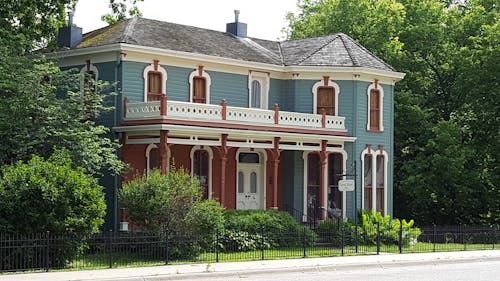You might have a few ideas about changing things up in the months ahead. Whether you dream of fixing up your home, going on exciting trips, or getting rid of some debts, there’s a helpful option – the CHIP Reverse Mortgage! The CHIP Reverse Mortgage is designed exclusively for Canadian homeowners aged 55 and better. It enables you to convert up to 55% of your home’s value into tax-free cash, while staying in the home you love and without worrying about monthly mortgage payments. Let’s explore how the CHIP Reverse Mortgage can help you accomplish your goals in the coming year and beyond.
Debt-Free Living and Financial Freedom
One of the primary concerns for many individuals is the burden of existing debts. The CHIP Reverse Mortgage by HomeEquity Bank presents an opportunity to take control of your financial situation by providing tax-free cash that can be used to settle outstanding debts. Imagine starting the year with a clean slate and embracing a lifestyle free from the constraints of debt.
Pursue Your Passions and Hobbies
One advantage of the CHIP Reverse Mortgage lies in its versatility, allowing you to use the unlocked home equity for activities that bring you joy. Whether you’re investing in a hobby you’ve always been passionate about, or even joining a gym to stay active and healthy, the CHIP Reverse Mortgage offers the financial flexibility to pursue your interests without compromise.
Support Loved Ones’ Aspirations
If you have family-oriented resolutions, the CHIP Reverse Mortgage provides an avenue to support your loved ones’.  Whether it’s helping a child or grandchild with tuition fees or contributing to a family member’s entrepreneurial endeavours, the tax-free cash from the CHIP Reverse Mortgage can empower you and your family.
Whether it’s helping a child or grandchild with tuition fees or contributing to a family member’s entrepreneurial endeavours, the tax-free cash from the CHIP Reverse Mortgage can empower you and your family.
Age In Place with Home Retrofitting
As the new year prompts reflections on long-term well-being, the CHIP Reverse Mortgage offers a practical solution for retrofitting your home to age-in-place comfortably. Use the funds to make necessary modifications, ensuring that your living space evolves with your changing needs while maintaining the independence and security of your home.
The CHIP Reverse Mortgage by HomeEquity Bank is a sound financial solution that provides means to accomplish your dreams by tapping into the wealth you’ve built in your home. Contact your Dominion Lending Centres mortgage expert to discover how the CHIP Reverse Mortgage can unlock a year filled with possibilities and turn your dreams into reality.





